What a difference 20 years can make.
It’s been two decades since the Government of Ontario announced it was launching the province’s very own cancer research institute.
This new institute was tasked with helping Ontario realize its promise as a global powerhouse of cancer research. It would not only conduct its own cutting-edge research — it would also strengthen Ontario’s cancer research infrastructure, foster collaborations across the province and drive the commercialization of research.
Twenty years later, the Ontario Institute for Cancer Research (OICR) has become a pillar of Ontario’s research and life sciences communities, with more than 300 staff members at the MaRS Centre in Toronto and a province-wide network of researchers and collaborators.
But most importantly, OICR has helped shift the paradigm for cancer care, delivering solutions to the biggest challenges in cancer that are changing lives every single day.
This report is a snapshot of the past two decades of OICR’s impact, the difference it is making today and the future of cancer research in Ontario.
20 years of OICR
At the time of OICR’s founding in 2005, Ontario was home to brilliant scientists and world-class institutions. Yet they often operated in silos, running up against barriers to collaborating and sharing information.
OICR’s predecessor organization, the Ontario Cancer Research Network, had made strides in connecting and supporting the province’s cancer research community. OICR was created to take the next step in breaking down barriers, uniting Ontario’s cancer research community and leading it toward clear goals: make life-changing innovations for people affected by cancer while building a healthier, stronger Ontario.
The early days were dedicated to laying a foundation. The brightest minds were recruited to the OICR community, both at our headquarters at the MaRS Centre and at our partner organizations across the province.
The young Institute also set in motion a number of projects that would transform the landscape of cancer research in Ontario and around the world, including global collaborations to collect and analyze tens of thousands of tumour samples, and unprecedented population health studies involving hundreds of thousands of Ontarians.
From the earliest days of OICR, the Institute has led international research that revolutionized the world’s understanding of how cancer develops.
Two landmark OICR-led studies, the International Cancer Genome Consortium and the Pan-cancer Analysis of Whole Genomes Project, discovered previously unknown genetic mutations that cause cancer and showed how they drive the evolution of tumours, paving the way for new, personalized ways to diagnose and treat cancer.
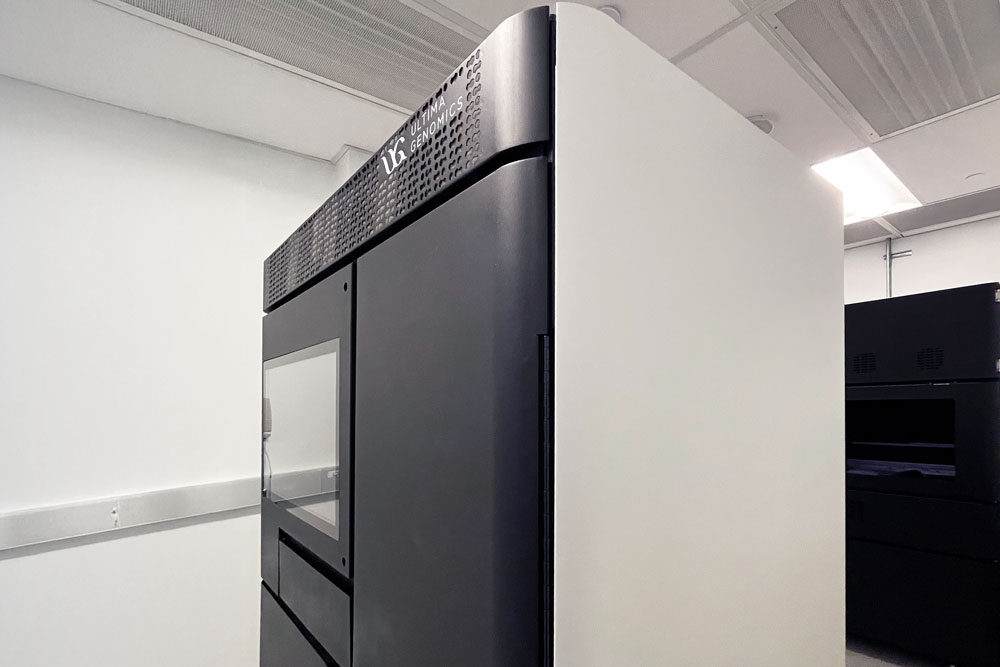
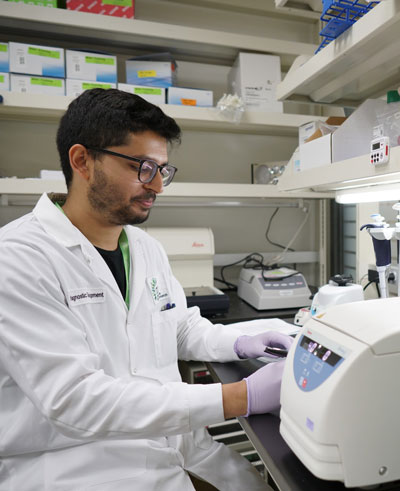

$807 million
in leveraged funding by OICR-funded programs, projects and awards.
(since 2007)
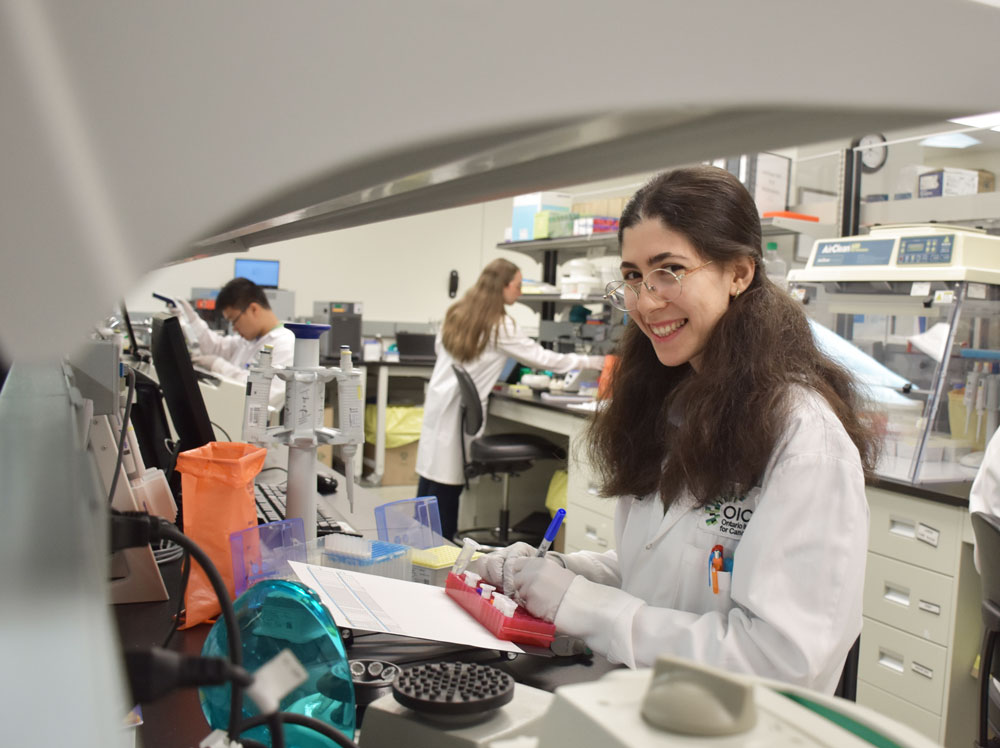
OICR contributed to discoveries reported in more than 6,800 publications. More than half (58%) are in top journals. Our papers are cited more than three times the global average.
(since inception)
400+ OICR-supported clinical trials.
(since inception)
2,900+ students
hosted by OICR-funded projects.
(since inception)
46,000+ patients
accessed new cancer innovations through OICR-supported clinical trials.
(since inception)
6,500+ educational events
supported by OICR to share knowledge and provide training.
(since inception)
OICR supports more than
1,900 highly-qualified personnel across Ontario each year.
20 years of OICR
As years passed, OICR’s footprint continued to grow. Our group of collaborators swelled to more than 600 organizations, and we launched new programs in Genomics and Drug Discovery that would dramatically expand our own research capabilities and support innovators across the province.
OICR’s maturing programs also meant a growing impact. Our long-term investments in innovative radiation therapy research helped create a new standard of care for patients with metastatic cancer, and in turn helped extend their lives. We also unlocked efficiencies in how biopsies for prostate cancers are performed, sparing patients from undue stress while saving Ontario’s health system the cost of unnecessary procedures.
OICR’s impact on the Ontario economy also continued to grow, as great ideas became thriving companies. With the launch of FACIT in 2012, OICR created Ontario’s first commercialization group specifically for the province’s cancer innovations. Together we would go onto launch companies, create highly skilled jobs, and attract historic investments to Ontario’s life sciences sector.

OICR innovations are shaping the way cancer care is delivered in Ontario, helping save lives, save patients from unnecessary suffering, and save the healthcare system money.
For example, stereotactic ablative body radiotherapy (SABR) has become standard of care for complex metastatic cancers after OICR-supported clinical trials showed SABR helped patients live an average of two years longer. OICR also supported pioneering research into an MRI-guided approach to diagnosing prostate cancer. Researchers found this approach requires fewer needle biopsies than the previous standard, and it has since been adopted into Ontario Health guidelines.
20 years of OICR
The more OICR evolved, the more we became part of the fabric of cancer research in Ontario.
True to our original mandate, we prioritized provincial infrastructure as much as our own research projects, raising the standard of cancer science across the province to the benefit of everyone.
Our support for cancer-specific clinical trials infrastructure in Ontario and across Canada helped improve how trials are set up and how they’re run. Our accessible collection of the tumour samples — one of the largest in North America — enabled groundbreaking research in Ontario and around the world. And our first-in-Canada technologies gave Ontarians access to the highest standard of genomics services.
Even with this world-class infrastructure, cancer research in Ontario couldn’t reach its full potential if it didn’t reflect the needs of patients. In 2020, OICR formally launched a journey to embed patient partners into all functions of the Institute, and patients are now playing a critical role in shaping our research and strategy.
Through our support for the Ontario Cancer Research Ethics Board, we have streamlined the ethics review process for clinical trials to help trials launch sooner while protecting the safety of participants. We also co-created the Canadian Cancer Clinical Trials Network, which has helped increase enrolment in cancer clinical trials across Canada, with a 120 per cent increase in Ontario. This is helping drive more innovations, while giving more Ontarians early access to cutting-edge cancer care.

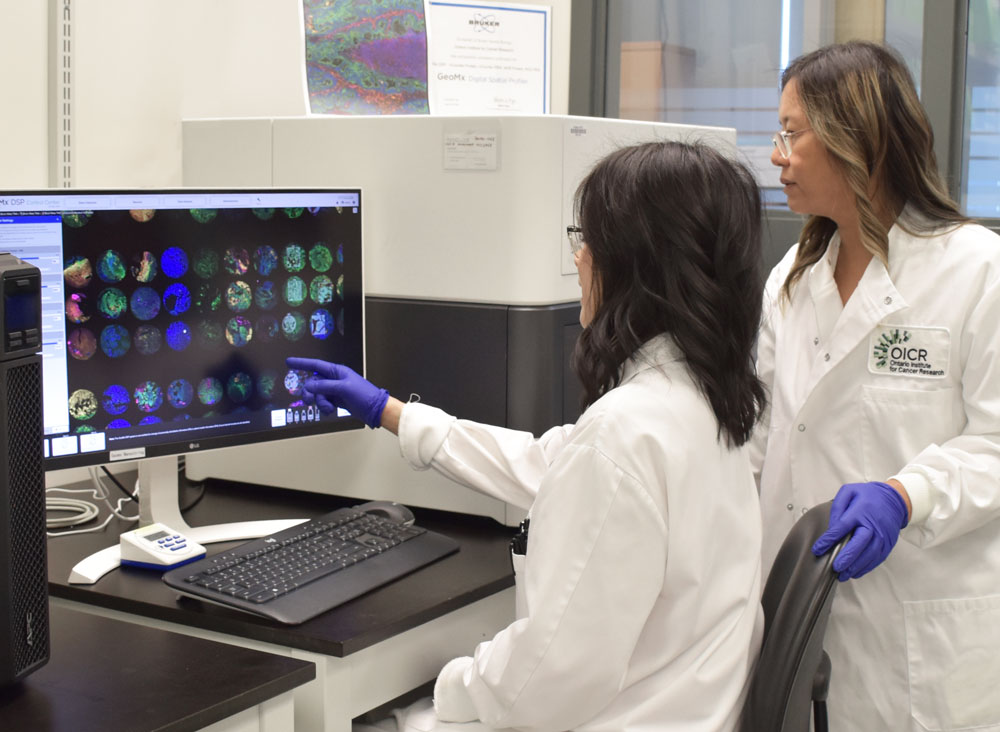

38 start-ups
OICR and FACIT have supported the establishment of 38 start-ups and provided resources to an additional 25 start-ups. (since inception)

1,600+ new collaborations were formed during the 2021-26 Strategic Plan.
737 highly qualified personnel were attracted to Ontario to join OICR-funded projects. (since inception)
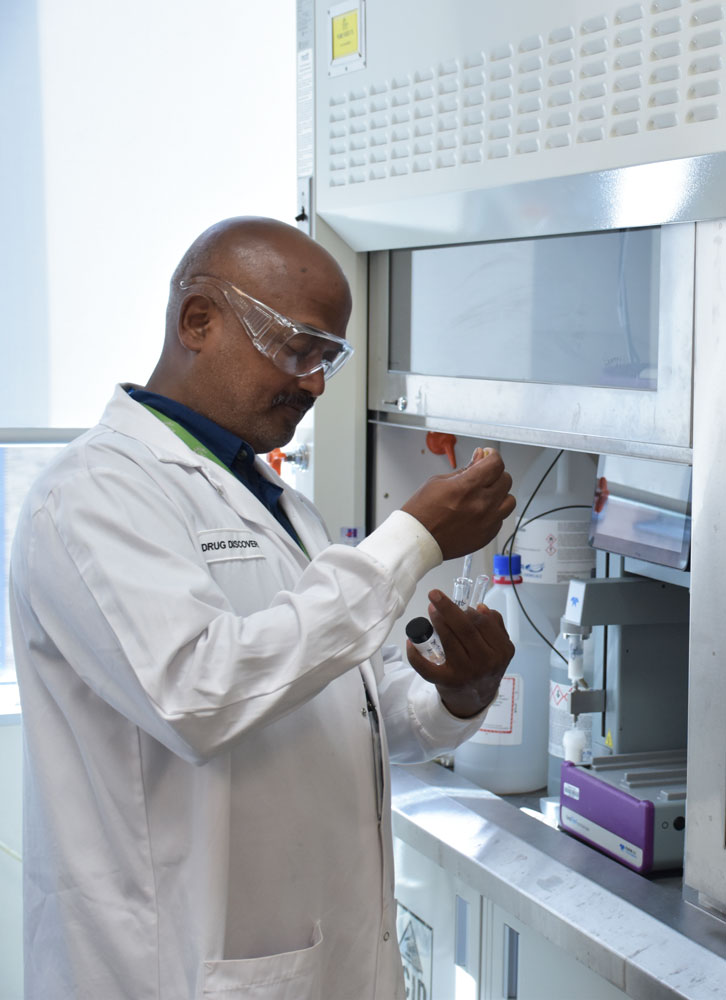

80+ patents awarded (since inception)
and 145 inventions (since 2010) related to OICR or FACIT INC have been disclosed.

1,500+ jobs per year
OICR and FACIT support more than 1,500 highly-skilled jobs in STEM fields on an annual basis, more than half of which are at start-ups across Ontario.

The investments attracted to Ontario’s life sciences sector by start-ups created and/or scaled with OICR/FACIT funding reached $1.8 billion in 2025.
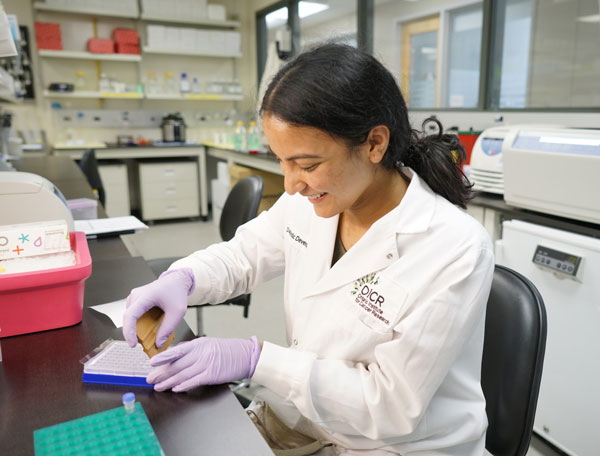

OICR and FACIT have helped build a booming life science sector in Ontario, launching thriving companies and advancing life-changing discoveries. That includes Hamilton-based Fusion Pharmaceuticals, which develops state-of-the-art radiopharmaceuticals to treat cancer. Fusion was spun out from the Centre for Probe Development and Commercialization — co-created by OICR — and supported by FACIT to grow and thrive in Hamilton. Then in 2024, Fusion was acquired by AstraZeneca for $2.4 billion USD, an historic investment for Ontario’s economy.
20 years of OICR
Twenty years can pass in the blink of an eye. But looking back at the people, milestones and innovations that have shaped the past two decades shows just how much OICR has achieved for Ontarians.
The numbers are undeniable. Thousands of publications in top-tier academic journals. Tens of thousands of Ontarian lives touched through our clinical trials. Billions of dollars injected into Ontario’s economy.
Yet these numbers only scratch the surface of OICR’s impact. The seeds we sowed 20 years ago have already borne fruit, and we are proud to be changing lives today. But those seeds have also grown roots across Ontario and around the world that will help us continue to make a real-world impact for generations to come.

With two decades behind us and a bright future ahead, here is a look at the new discoveries, talented people and other cancer research stories that made headlines at OICR last year.
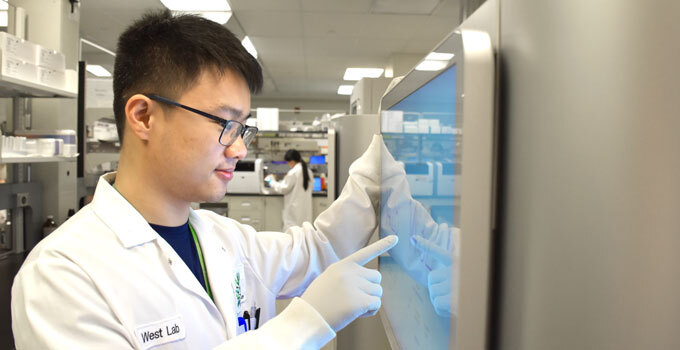
An OICR initiative has reduced the turnaround time for whole genome and transcriptome sequencing in pancreatic cancer studies from 45 to 14 days.

Researchers from OICR and UHN have developed a predictive test that measures fragments of tumour DNA in the bloodstream.

OICR-supported researchers have identified a promising therapeutic target for clear cell renal cell carcinoma.
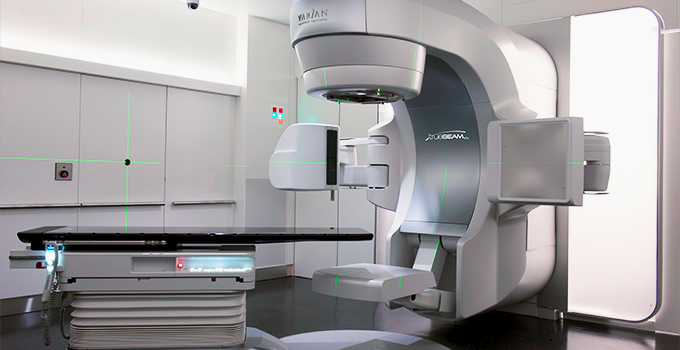
OICR-supported scientists are pushing the boundaries of radiotherapy to help patients with the most complex cancers.

OICR sponsored University of Toronto undergraduate student Mesai James for the 2024 BioCanRx Indigenous Summer Student Internship.
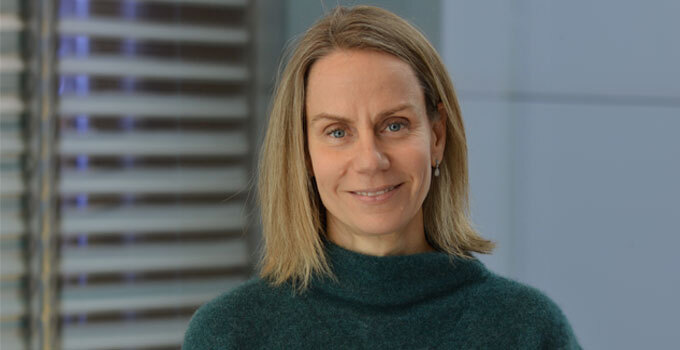
OICR’s Dr. Michelle Brazas will lead the initiative which has received $6 million in funding from CIHR and Genome Canada
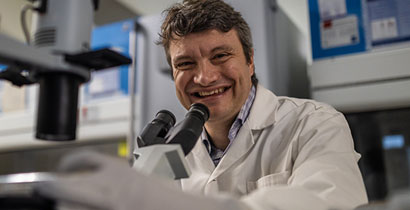
An OICR-supported discovery could help acute myeloid leukemia (AML) patients get earlier, more personalized treatments to slow down deadly relapses.
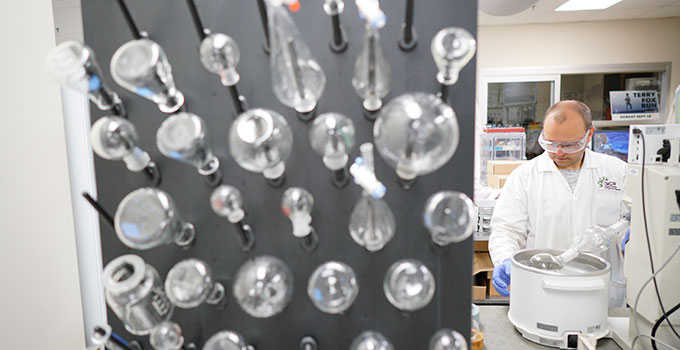
A study led by OICR drug discovery researchers could pave the way for new treatment options for blood cancers.
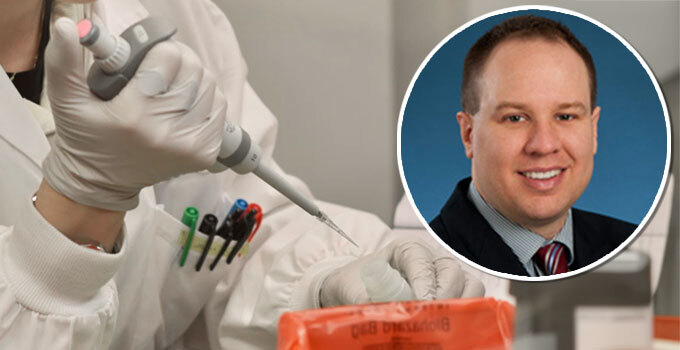
The Ontario-wide Cancer Targeted Nucleic Acid Evaluation (OCTANE) expanded the province’s capacity for next-generation sequencing to deliver personalized approaches to treat cancer.

OICR supports cancer research at 20 communities across Ontario, including 10 universities, 25 hospitals and 10 institutes.
(2024-25)

OICR collaborates with people at 643+ organizations from 51 countries around the world.
(2024-25)

84 patient partners
contributed to OICR research projects. (2024-25)

3 new start-ups
and 4 new patents were awarded.
(2024-25)
23 researchers
attracted to Ontario as a result of OICR-supported projects. (2024-25)

OICR-supported researchers contributed to 433 publications in 2024-25, which have already been cited more than 960 times. (2024-25)
337 students
hosted by OICR-funded projects and OICR supported 700+ educational events.
(2024-25)

3,100+ patients have been recruited to 163 OICR-supported clinical trials. (2024-25)
Learn more about OICR by subscribing to our monthly newsletter or following us on, Linkedin, Instagram, and Bluesky.